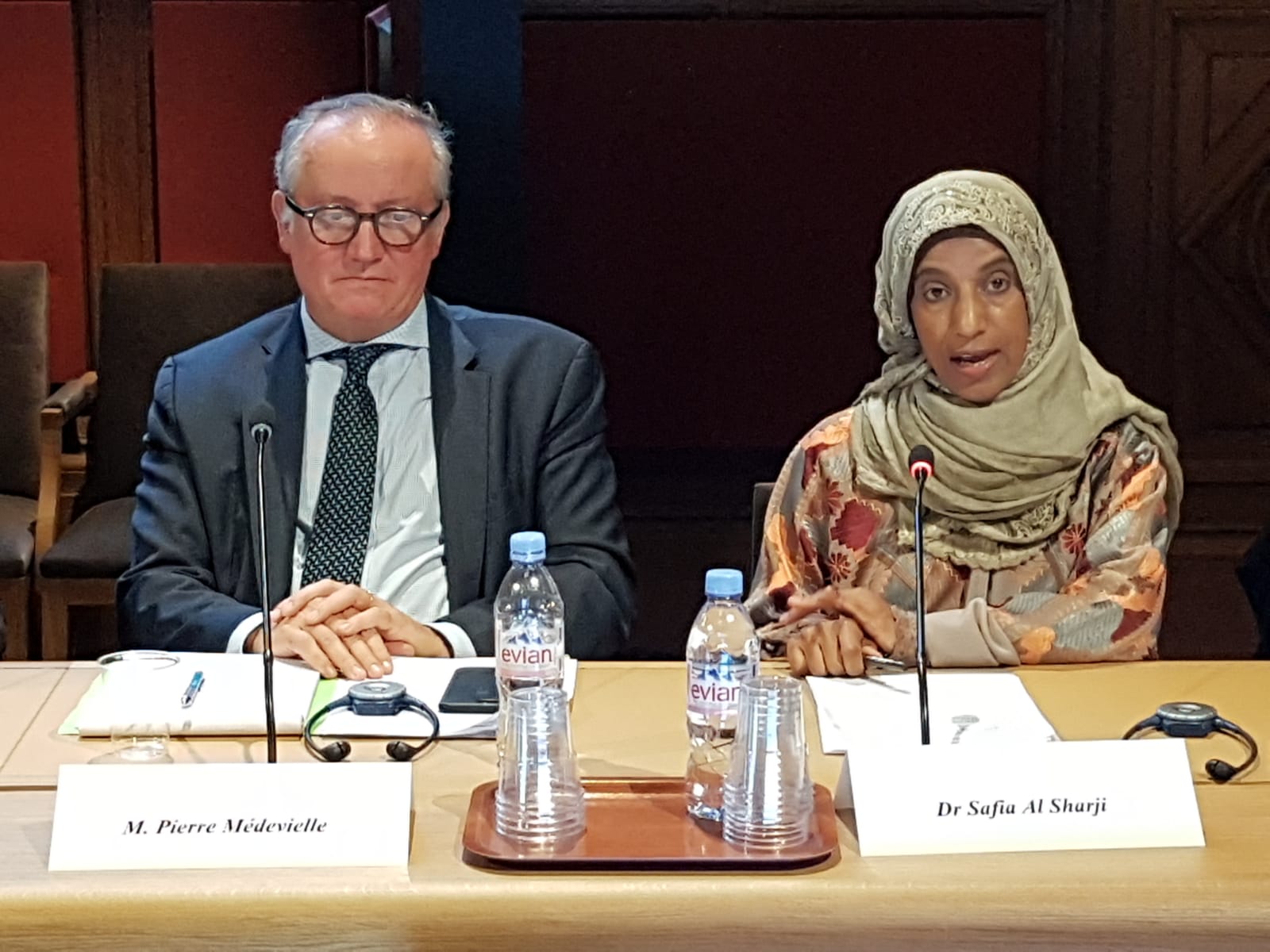Located at the Eastern end of the Arabic peninsula, more east of Arab world, Oman is directed since 1970 by the Sultan Qabus Ibn Said who, prosecutor with great steps the modernization of the economy and the company, works with a democratic transition and egalitarian.
Influential actor of the international diplomacy, Qabus Ibn Said knew to maintain his country in independence, neutrality and the tolerance with regard to the various religions.
On October 22nd was held with the Senate a round table on “the place and the condition of the woman in the Omani company”, on the initiative of Its Excellence Sheikh Dr. Saïd Albahar Al Rawas, ambassador of the Sultanate of Oman in France and the senator Jean–Marie Bockel, president of the group of friendship France–Country of the Gulf, animated by Leila Murr and Orass Zibaoui, journalists specialists in the Arab world.
During this conference, Pierre Joxe, former minister, spoke about the “method Omani”, made of dialogue, listening and discretion, very impressed smoothness and of tolerance. For him, with co–education in the universities and the evolution towards the parity, Oman is precursory situation of the women of the Gulf.
In Oman, Moslem State between tradition and modernity, most women wear the veil but they acquired political and social rights, garanteed by the Constitution, more important than their colleagues of the other Arab countries. Article 17, bases Omani legislation issued the equality of all the citizens.
In 1995, Oman was the first of six monarchies of the Gulf to grant the right to vote to them and of eligibility, which made it possible number of them to reach by 1994 official stations all the levels of the administration. They are mayors (one counts seven of them), ambassadresses abroad and even ministers since 2004 (two ministers and a Secretary of State for the Crafts).
Four deputies sit at the two Assemblies, Majlis A‘ Shura (Advisory counsel) and Majlis A‘ Dawla (Council of State).
42% of the women are civils servant.
The current laws and regulations give the same chances to the women as with the men in the sectors commercial and industry. In the private sector, they work like simple employees, but some occupy of the management positions and are even chairman (1st in 2009).
They can undertake, invest, manage (23% manage large companies), become owners and to have a heritage independent of that of their husband and their children.
Dr. Souad Louati, vice–president of the Council, speaker of the round table, mentioned a decree of 2008 of the Code of the Trade which authorized the women to acquire plots of land, so that, of 2012 to 2016.60% of the pieces were granted to them.
61% of the doctors are women.
70% of the recipients of funds of assistance at SME, primarily in the agricultural domain, were women.
A Committee of the working women aims at reinforcing their role in the trade–union field.
They are very present in the tourist sector (25%), priority sector under development full, like in the associative sector.
The law instituted the wage equality and a social protection with maternity leave.
They have the possibility of being useful in the army with an access to all the functions.
Since 2009, on October 17th became the national Day of the Omani woman. On March 8th is also, as in the Western countries.
Priority is given to education in the public expenditure.
Students are sent abroad, Malaysia, Singapore, Canada, the United States.
The number of teaching exceeds that of the men.
60% of the population are taught reading and writing and educated. 60% of the girls have access to higher education. The equal opportunity is an established principle.
With the support of the UNICEF, the woman reinforces her role within the family.
Laws protect the children, the minor ones, prohibit early or forced marriages. The median age of the marriage is 26 years.
It can now travel and to have a passport without authorization of its tutor. It can also lead.
The women are very implied in voluntary work, sector dynamic which gives work to 10% of the population.
But, like it underlined Dr. Safia Al Sharji, professeure in High College of Technology, at the time of the round table to the Senate, the problem is the application of these laws.
Sultan Qabus Ibn Said, at the time of a speech in 2016 exhorted the people to respect them and reaffirmed his preoccupation with an equality between women and men.
Already several years before, he had declared: “The nation is like a bird, it needs as of its two wings to fly.”











Views: 0



More Stories
51st César Awards: A Night of French Cinema and Parisian Elegance
Meeting at the Élysée between Emmanuel Macron and José Manuel Ramos-Horta
Phenom 300E: The World’s Leading Light Jet for 14 Consecutive Years